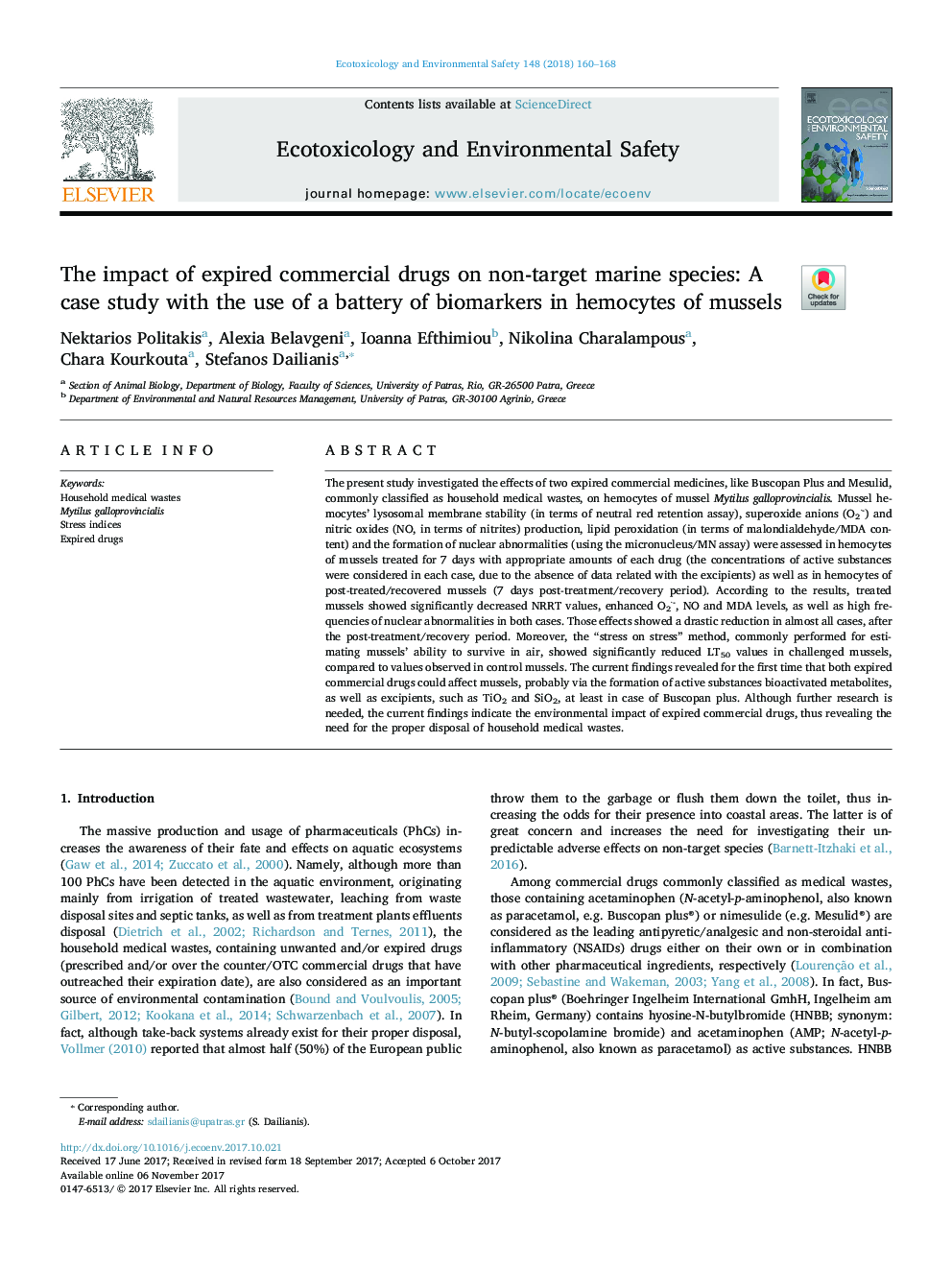| Article ID | Journal | Published Year | Pages | File Type |
|---|---|---|---|---|
| 8854801 | Ecotoxicology and Environmental Safety | 2018 | 9 Pages |
Abstract
The present study investigated the effects of two expired commercial medicines, like Buscopan Plus and Mesulid, commonly classified as household medical wastes, on hemocytes of mussel Mytilus galloprovincialis. Mussel hemocytes' lysosomal membrane stability (in terms of neutral red retention assay), superoxide anions (O2·-) and nitric oxides (NO, in terms of nitrites) production, lipid peroxidation (in terms of malondialdehyde/MDA content) and the formation of nuclear abnormalities (using the micronucleus/MN assay) were assessed in hemocytes of mussels treated for 7 days with appropriate amounts of each drug (the concentrations of active substances were considered in each case, due to the absence of data related with the excipients) as well as in hemocytes of post-treated/recovered mussels (7 days post-treatment/recovery period). According to the results, treated mussels showed significantly decreased NRRT values, enhanced O2·-, NO and MDA levels, as well as high frequencies of nuclear abnormalities in both cases. Thοse effects showed a drastic reduction in almost all cases, after the post-treatment/recovery period. Moreover, the “stress on stress” method, commonly performed for estimating mussels' ability to survive in air, showed significantly reduced LT50 values in challenged mussels, compared to values observed in control mussels. The current findings revealed for the first time that both expired commercial drugs could affect mussels, probably via the formation of active substances bioactivated metabolites, as well as excipients, such as TiO2 and SiO2, at least in case of Buscopan plus. Although further research is needed, the current findings indicate the environmental impact of expired commercial drugs, thus revealing the need for the proper disposal of household medical wastes.
Related Topics
Life Sciences
Environmental Science
Environmental Chemistry
Authors
Nektarios Politakis, Alexia Belavgeni, Ioanna Efthimiou, Nikolina Charalampous, Chara Kourkouta, Stefanos Dailianis,
